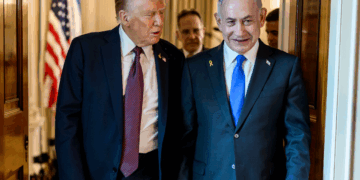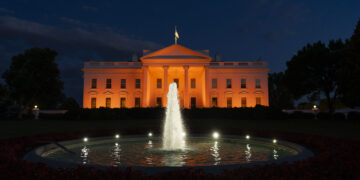
President Trump has made a habit of dropping major news when Israel’s Prime Minister Benjamin Netanyahu visits the White House. In early February, during a joint news conference with the Israeli leader, Trump debuted his plan for the U.S. to take over Gaza and turn it into the “Riviera of the Middle East.” Last week, with Netanyahu making an emergency trip to Washington to discuss tariffs, Trump broke the news that direct negotiations with Iran over the country’s nuclear program would begin in Oman over the weekend.
“Everyone agrees that doing a deal is preferable to doing the obvious,” Trump told reporters in the Oval Office, the “obvious” referring to military strikes on Iranian nuclear facilities. There was one person in the room, sitting just a few feet away, who has made clear over and over again that he would prefer that obvious option: Benjamin Netanyahu.
Trump is making the right call by kickstarting diplomacy to deal with Iran’s nuclear program. Preventing Iran from acquiring a nuclear weapon through diplomacy advances U.S. interests in the Middle East. A new accord would not only put Iran’s nuclear program in a box, but give Washington a better shot at retrenching from a region of declining strategic importance. The president would be smart to ignore Netanyahu’s advice about the talks and the contours of a potential deal.
Netanyahu, the longest-serving premier in Israeli history, has an extensive history of providing counsel to U.S. policymakers that turns out to be at odds with U.S. interests. Before the 2003 invasion of Iraq, Netanyahu said there was “no question” that Saddam Hussein was developing nuclear weapons. He famously said that taking out Saddam’s regime would “have enormous positive reverberations on the region” and lead to a democratic uprising in Iran. As almost everyone now agrees, that advice has proven to be spectacularly wrong.
More on Middle East

Featuring William Walldorf
September 28, 2025
Events on Iran








